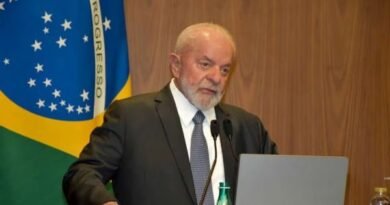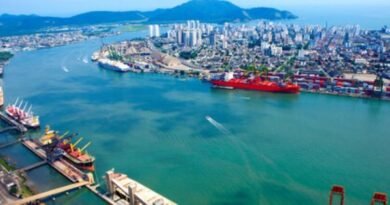Brazil’s Food Purchase Program re-launched
[ad_1]
Brazil’s Food Purchase Program re-launched
We don’t just want to eat three times a day…, Lula said
Brazil’s government Wednesday re-launched the Food Purchase Program (PAA) that used to exist in President Luiz Inàcio Lula Da Silva’s previous administrations. The new format will focus on expanding production from minority groups and land reform measures, Agencia Brasil reported.
In a ceremony in Recife, Lula said that the re-launch of the program was an important step towards improving the quality of Brazilian food and the income of those who live in the countryside. These people have to eat three times a day, these people have to work. We don’t just want to eat three times a day, we want to dress well, we want to study well, we want to have a car, a refrigerator, we want to travel, everything that we are capable of producing… If we made it ourselves, we have the right to have it. That’s why we have to fight because nobody will give it to us for free, he said in the capital of Pernambuco.
Agrarian Development and Family Agriculture Minister Paulo Teixeira explained that federal agencies will be oriented to buy at least 30% of the food from family farmers. We will advance a lot to take Brazil out of hunger, he said.
Minister Wellington Dias, of Development and Social Assistance, Family and Fight Against Hunger, highlighted that the PAA’s priority is to destine money for food production that will go to Brazilians who go hungry.
Through the program, the federal government buys products from family farms, with no need for bidding, and distributes them to institutions that serve groups in socially vulnerable situations, public restaurants, community kitchens, food banks, hospitals, and prisons. The purchases are made by the states and municipalities or by the National Supply Campaign (Conab) with federal funds.
The national leader of the Landless Rural Workers Movement (MST), Jaime Amorim, defended the resumption of public food stocks in the country, which can be used, for example, to contain price increases. A country that doesn’t have food stocks has no sovereignty, it will always depend on large corporations, he said.
Created in 2003, the PAA was part of the Fome Zero strategy, which aimed to contribute to reducing food and nutritional insecurity by strengthening family farming and the local economy. In 2021, the program changed its name to Alimenta Brasil Program.
The new version of the PAA increased the individual quota that family farmers can commercialize for the program. The quota is valid for the Simultaneous Donation, Stock Formation, and Direct Purchase modalities. Access can be made directly or through cooperatives and associations.
The minimum participation of women has also been increased, from 40% to 50%, according to the Ministry of Social Development.
Another novelty is the resumption of the presence of civil society representatives in the program’s Management Group.
The National Council for Sustainable Rural Development (Condraf) was reinstated and the Program for Productive and Economic Organization of Rural Women was created.
Brazil’s government also announced measures in other areas, such as health, cities, and science and technology.
The National Bank for Economic and Social Development (BNDES) and United Nations agencies will develop actions to adapt small farmers in the Northeast to climate change.
An agreement between the Ministry of Fishing and Aquaculture and state universities foresees the inclusion of artisanal fish in the meals offered by university restaurants and training courses for artisanal fishermen.
(Source: Agencia Brasil)
[ad_2]
Source link




